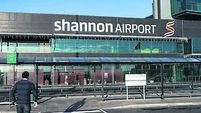Several hurt as gunmen shoot at Haiti demo
Shots were fired today during a protest at Haiti’s National Palace, where demonstrators were calling for former President Jean-Bertrand Aristide to be tried for corruption.
At least five people were injured, three who appeared to have been shot. Soldiers carried a few to a section of the palace where they could be treated.














